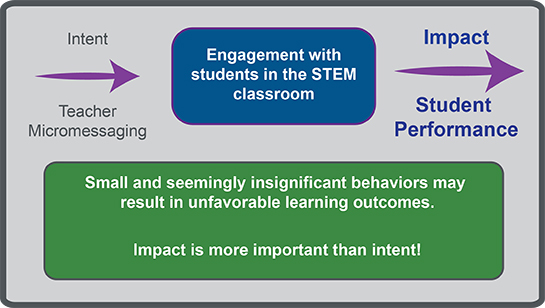MM 4.1 Impact is More Important Than Intent: Technical College System of GA
As educators, we must recognize that our intentions may be good, but our words, actions, or environment may inadvertently send the wrong message. Student perceptions, whether accurate or not, create beliefs that impact learning behavior and self-efficacy.
Figure 4: Impact and Intent

Here’s an example: When a teacher says “Please sit down James” the intent may be to get James and other students seated to start the class, but the impact may be that James feels singled out and “picked on”.

